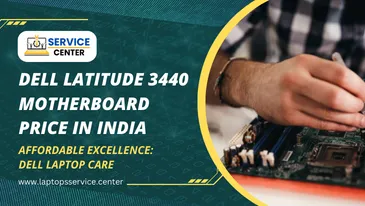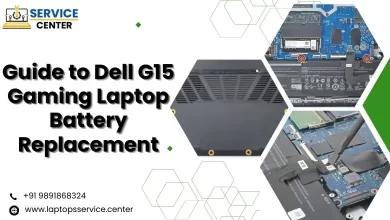Dell Laptop Motherboard Common Problems and Solutions

The motherboard is the backbone of any computer system, including Dell laptops. It’s the hub where all components connect and communicate, making it crucial for smooth operation. However, like any other electronic component, Dell laptop motherboards are susceptible to problems. This comprehensive guide will investigate the Dell laptop Motherboard Common Problems and Solutions and provide practical solutions.
Importance of Motherboard
The motherboard is often referred to as the heart of a laptop, and for good reason. It facilitates communication between hardware components such as the CPU, RAM, graphics card, and storage drives. Without a properly functioning motherboard, your Dell laptop may experience various issues, from random crashes to complete system failure.
Fundamental Causes of Motherboard Failures in Dell Laptops
Understanding the root causes of motherboard failures is essential for effective troubleshooting. Some common factors contributing to Dell laptop motherboard issues include:
1. Overheating: Excessive heat can damage sensitive components on the motherboard, leading to malfunctions or failures.
2. Physical Damage: Accidental drops or spills can cause physical damage to the motherboard, resulting in connectivity issues or short circuits.
3. Electrical Surges: Power spikes or surges can fry delicate circuitry on the motherboard, rendering it unusable.
4. Aging Components: Like all hardware, motherboard components degrade over time, increasing the likelihood of failures, especially in older laptops.
5. Manufacturing Defects: Rarely, manufacturing defects can lead to premature motherboard failures, even in brand-new Dell laptops.
Read More: Dell Latitude 3440 Motherboard Price in India
Resolving Common Motherboard Issues
Fixing Dell laptop motherboard problems requires a systematic approach and some technical know-how. Here are steps to troubleshoot and resolve common issues:
1. Diagnostic Tools: Use built-in diagnostic tools like Dell’s SupportAssist or third-party software to identify hardware issues, including motherboard problems.
2. Update Drivers and BIOS: Ensure your laptop’s drivers and BIOS are current, as outdated software can sometimes cause compatibility issues with the motherboard.
3. Check for Physical Damage: Inspect the motherboard for signs of physical damage such as cracks, bent pins, or burnt components. If found, consider professional repair or replacement.
4. Clean the Interior: Dust and debris accumulation can exacerbate overheating issues. Regularly clean the laptop’s interior, including the motherboard and cooling system, to prevent thermal problems.
5. Re-seat Components: Sometimes, loose connections can cause intermittent motherboard issues. Carefully re-seat components such as RAM modules, CPU, and power connectors to ensure a secure connection.
6. Test with Minimal Configuration: Disconnect unnecessary peripherals and components, then boot the laptop with only essential hardware (CPU, RAM, and power). This helps isolate the cause of the problem.
7. Run Stress Tests: Use stress testing software to assess the stability of the motherboard under heavy load. This can help identify any underlying issues with the hardware.
Choose the Right Place to Replace a Defective Dell laptop motherboard.
Replacing the motherboard may be necessary if troubleshooting fails to resolve the issue. Here’s how to ensure a smooth replacement process:
1. Genuine Parts: Opt for genuine Dell replacement motherboards to ensure compatibility and reliability.
2. Third-party services: If your laptop is out of warranty, consider reputable third-party Dell services with proven track records in laptop repairs that ensure quality workmanship and reliability.
3. Professional Service: Unless you’re experienced with laptop repairs, it’s best to entrust motherboard replacement to certified technicians or authorized service centers.
4. Warranty Coverage: Check if your Dell laptop is still under warranty, as motherboard replacements may be covered, saving you potentially significant costs.
Additional Tips for Dell Laptop Motherboard Common Problems and Solutions
Here are some additional tips to keep your Dell laptop’s motherboard in tip-top shape:
1. Keep it Cool: Invest in a laptop cooling pad to prevent overheating and extend your motherboard’s lifespan.
2. Handle with Care: Avoid rough handling or transporting your laptop while powered on to reduce the risk of physical damage.
3. Backup Regularly: Backup your data regularly to prevent loss in case of unexpected motherboard failures or other hardware issues.
4. Stay Updated: Stay informed about firmware updates and recalls from Dell to address any known laptop motherboard issues promptly.
Conclusion
The motherboard is undeniably one of the most critical components of any Dell laptop. By understanding the Dell laptop Motherboard common problems and solutions in this guide, you can keep your computer running smoothly for years. Remember, proactive maintenance and timely repairs are crucial to ensuring the longevity and reliability of your Dell laptop’s motherboard.




